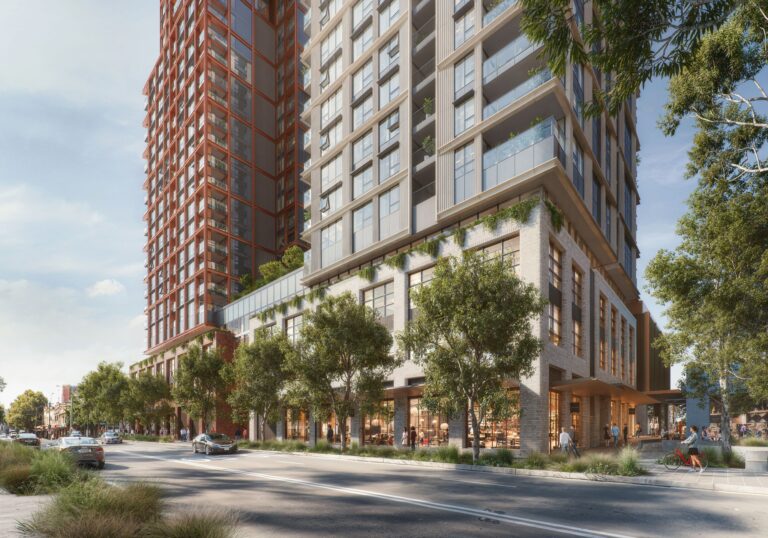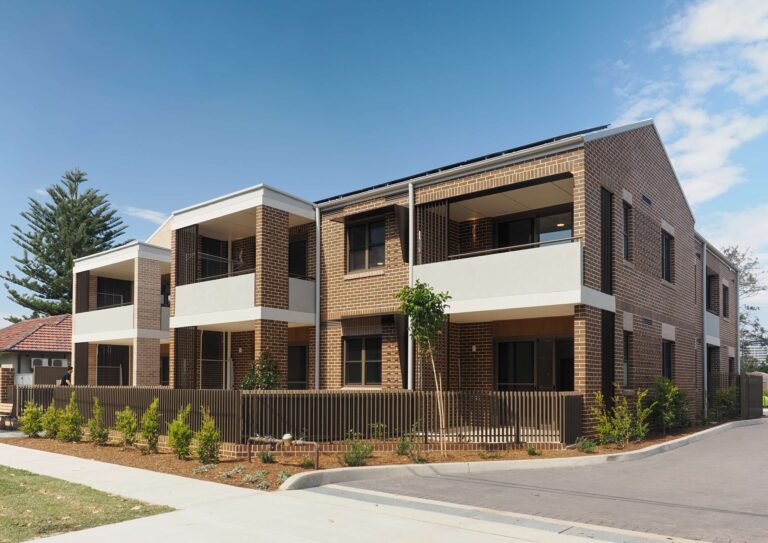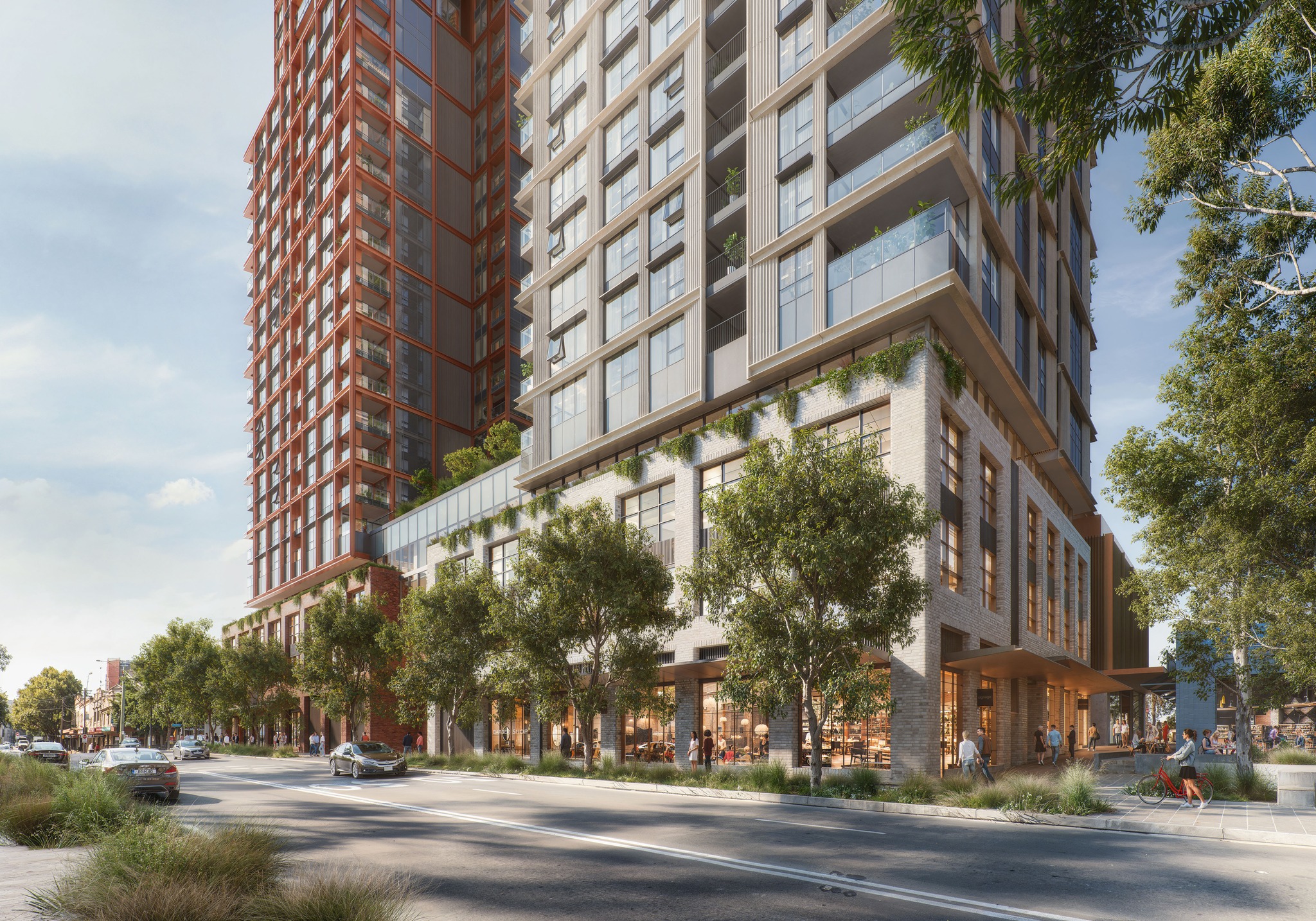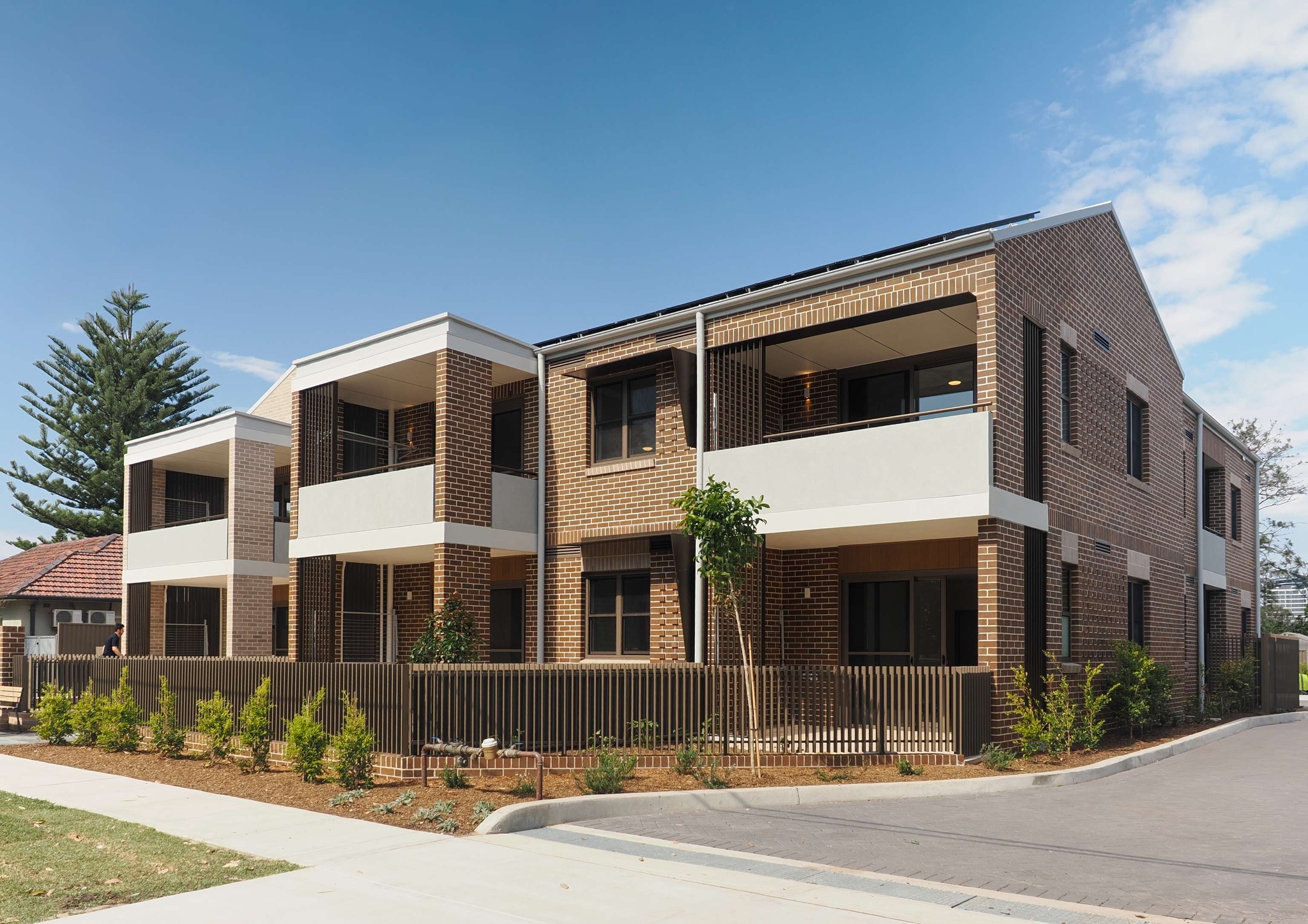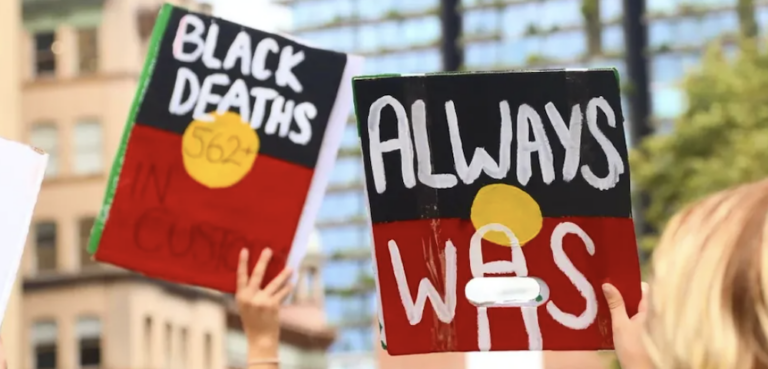
The fight to save Explorer Street public housing is far from over
By ROBBIE MASON
A tense meeting between public housing bureaucrats, alarmed locals and a tenant from Explorer Street public housing last Thursday has failed to alleviate concerns over the proposed rezoning and redevelopment of Eveleigh public housing.
The meeting, mediated by REDwatch, an inner-city community group, included staff from the Department of Environment and Planning (DEP) and the Land and Housing Corporation (LAHC). In December last year, the state’s previous Liberal government sidelined the City of Sydney Council, placing planning control in the hands of the DEP via the Rezoning Pathways Program.
During the meeting, audience members highlighted their powerlessness in planning processes and questioned the need to demolish public housing, accusing DEP and LAHC staff of coming to the meeting with a “pre-determined” outcome.
One audience member asked, “do you even ask if we actually want it?”
The crowd present took issue with the nature of the presentation, which many felt came across as a one-way conversation. This was in part because the update provided by state housing representatives indicated a business-as-usual approach.
Máire Sheehan, a member of Action for Public Housing and the Better Planning Network, described the meeting as “a briefing” where housing administrators were able to show “they’re not restarting the process” and that development plans will proceed to public exhibition in September as planned.
“Nothing has changed in terms of the idea that it is going to be demolished and redeveloped,” she continued.
Sarina Afa, who has lived at the Explorer Street site since 1997, described to City Hub the mental toll of the fight to preserve her home.
“Every time we have a meeting, my heart sinks a little bit more, thinking we have less and less say”.
“The meeting started on a strange note,” Afa recounted. Reflecting the disconnect between government bureaucracy and impacted residents on the ground, the opening slide of the PowerPoint presentation contained photos of privately-owned houses on Henderson Road in Eveleigh, rather than Explorer Street homes. While Henderson Road is nearby to Explorer Street, the redevelopment will not demolish any homes on Henderson Road.
It made the meeting feel disingenuous, Afa told City Hub.
But locals are certainly not conceding defeat. It’s obvious from the length of the phone call with Afa that she feels simultaneously silenced and up for the fight. “We are so low down on their list of priorities,” she stated.
Although “unhappy” about the proposed rezoning and redevelopment of the Explorer Street public housing, Afa pledged to continue the campaign against redevelopment: “we’ll fight it to the end for a chance to stay here.”
Andrew Chuter, President of the Friends of Erskineville and a spokesperson for Action for Public Housing, said, it was “disappointing” to receive indications at the meeting that the policies of the former Perrottet-Liberal government continue to shape the current Labor government.
“We specifically asked the representatives of the DPE and LAHC whether there had been any instructions from the new Housing Minister Rose Jackson that would indicate an intent by Labor to fulfill their election promises not to privatise or outsource public housing, but they said there had been no such communications,” Chuter said.
“It looks like the ‘Communities Plus’ model requiring LAHC to be self-funding are set to continue”.
An inconsistent stance on public housing and slow communication with tenants has plagued the NSW Labor government in recent months, causing confusion and distress for residents in inner-city public housing sites.
Lack of faith in government bureaucrats
Distrust between tenants and staff from the DPE, LAHC and the Department of Communities and Justice was a theme that emerged during the meeting.
Aware that she is a tenant in an under-occupied public home – some of her children have now grown up and moved into other homes – Afa said she requested a transfer to a more suitable, smaller home in 2006. Issues with a leaking roof and flooding also contributed to that request. But she received no offer of a transfer. It’s a point she also made emphatically during the meeting – one that speaks to a pervasive feeling of distrust.
This lack of responsiveness makes Afa sceptical that bureaucrats can ensure a swift right of return, following evictions, demolition and construction, if the redevelopment project proceeds.
She said, “I don’t know how they can achieve all these promises if they don’t even stick to the basics at the moment.”
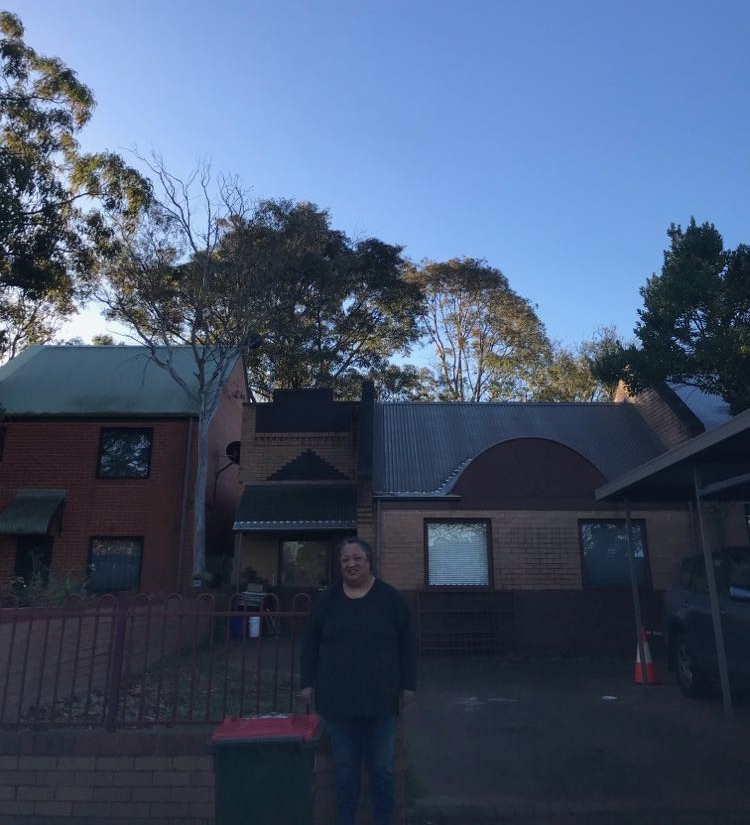
Sheehan said that many tenants in public housing in the inner city are “worried about speaking out”. Layers of anecdotal evidence, impossible to ignore, have smothered activist organisations, giving weight to the sentiment, unfounded or not, that publicly voicing concerns will result in different treatment from state housing representatives, or even harassment.
“They think they might be putting at risk where they will be relocated, and whether they will get sent back to their local area”, Sheehan said.
While there was a wide array of people present at the REDwatch meeting including tenants from public housing sites further abroad, Afa told City Hub she was the only tenant from Explorer Street present. It made her question whether the meeting was a “true indication” of how Explorer Street tenants feel.
A DEP staff member, meanwhile, indicated that the department increasingly want to connect with tenants via local community groups such as REDwatch. The government department hopes this will enable more efficient and productive dialogue. But it appears there’s no easy solution.
Afa emphasised a range of barriers to access which have made it difficult for her to drum up support among more timid neighbours. Many do not speak English as a first language and some rely on letterbox drops, rather than the internet, to remain abreast of housing news. One Arabic-speaking neighbour told Afa he could not attend the meeting without his son being there to translate.
With the fate of the site still up in the air, some tenants at Explorer Street remain overwhelmed and paralysed. One tenant, Afa relayed, packed up her house soon after she received notification of the renewal project in November 2020.
“She’s scared that they’re going to come and throw her out straight away,” Afa said.
Geoff Turnbull, spokesperson for REDwatch, said that a “lack of clarity” is sowing confusion among Sydney’s public housing residents.
The commitment to a mixed-tenure vision of social and affordable housing for the Explorer Street site represents the partial privatisation of public land.
Chuter pointed out that this “runs contrary” to a resolution created at a NSW Labor conference in October last year. This resolution represented a concrete pledge to implement a moratorium on the sale, outsourcing and leasing of any public housing assets or services.
“Unless all housing at Explorer Street remains 100 percent public housing, run completely by government, that is a clear broken promise,” Chuter said.
Speaking at a REDwatch meeting early last month, Housing Minister Rose Jackson indicated that she considers the conference motion to be the policy of the state government.
Repair instead of demolish, critics say
Sheehan, Chuter and Afa all rallied against demolition. They want to see repairs undertaken at Explorer Street – or renovations where needed – and no evictions.
Expressing solidarity with impacted tenants at Explorer Street, Jenny Leong MP, the Member for Newtown and Greens Housing Spokesperson, said, “The last thing we should be doing in the middle of a housing crisis is demolishing existing public-housing in our inner city community.”
“The NSW Labor Government must prioritise treating public housing tenants with respect. And instead of bringing in the bulldozers, they should be exploring sustainable infill options, prioritising maintenance – particularly of the thousands of vacant public housing properties left to ruin – and investing public money to build new public homes,” she continued.
Underlining the youthfulness of the homes, built as recently as 1991, Sheehan stated, “most of those buildings are in perfectly good condition. In other words: they don’t need to be demolished.”
While Afa has had ongoing maintenance issues with her home – some have persisted as long as ten years without repair – she appreciates her current home.
“I’ve had a problem with water coming through the roof,” she said, “but I know that part of the house can be closed off.”
“I see also that I can live close to town… I’m close to the hospital where I go every week. There’s still a lot of good points even if the house isn’t maintained as well as it should be.”
Afa sees the intent to demolish the site as unnecessary. “There’s not even one place that’s empty in the 46 homes here. They’re all tenanted. They’re all maintained. A lot of people do the upkeep on their own.”
Neighbours have spent “thousands” maintaining their homes out their own pockets, installing basic comforts such as air conditioning and investing in properties they don’t even own, Afa recounted. One neighbour put in a water purification system “because the water comes from old pipes from the [nearby] railway yard, and it tastes horrible and metallic. Nobody drinks it. We all drink bottled water or purified water.”
In Afa’s eyes, this DIY spirit has made the estate “a perfect little oasis”. Rezoning the area to enable higher-density tower blocks will destroy the tight-knit community that has formed at Explorer Street – a community Afa labelled “my family”.
Community support is widespread
Although the atmosphere at the REDwatch meeting was largely polite, in Chuter’s words, “the bureaucrats there were left with no illusions that the community is strongly opposed to any demolitions.”
There are no signs that grassroots community support will disappear with all parties consulted in the writing of this article indicating they will continue the fight.
Jenny Leong MP said, “public housing tenants, and our inner city community, have been taking to the streets, hosting BBQs, and getting organised to engage those impacted – and together we are sending a clear message that evictions, demolitions and sell-offs are not the solution.”
Last month, City of Sydney Deputy Mayor Sylvie Ellsmore, a Greens Councillor, commended the “strong response” of supporters to the public housing occupation at 82 Wentworth Park Road, Glebe.
“I don’t know if that would have happened five or ten years ago. But community attitudes to public housing have shifted,” she told City Hub back then.
It’s an astute observation in light of the diversity of supporters present at the REDwatch meeting last week. But it remains to be seen if renewed interest in defending public housing and solidarity will save Explorer Street.
